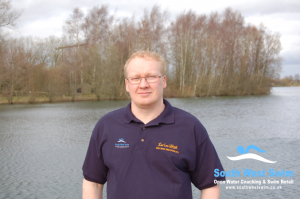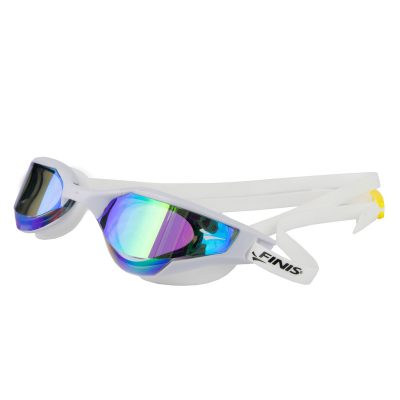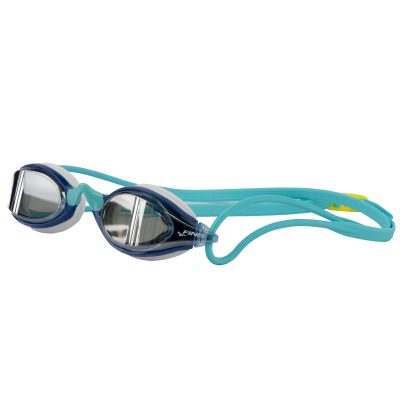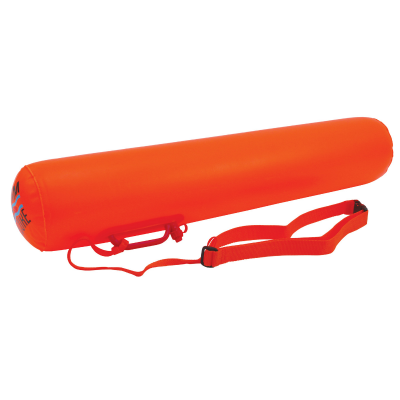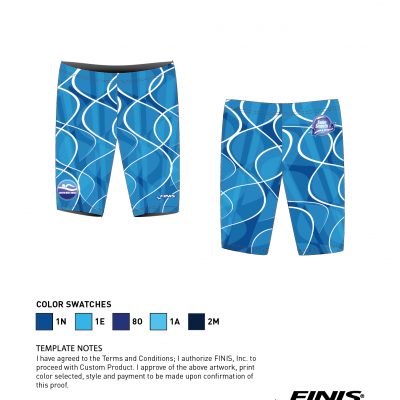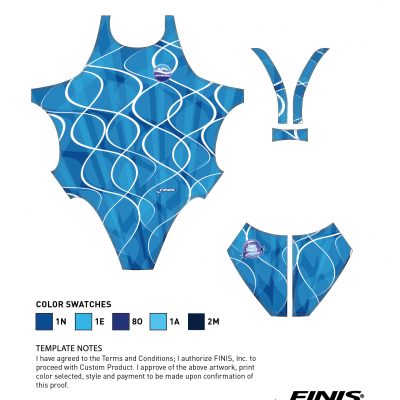Beginners in Open Water – The Start Of An Epic Journey
 Written by Jason Tait, ASA & STA Open Water Specialist Coach – South West Swim Open Water Coaching & Retail
Written by Jason Tait, ASA & STA Open Water Specialist Coach – South West Swim Open Water Coaching & Retail
www.southwestswim.co.uk
I am often asked if swimming in Open Water is different to swimming in the pool, some swimmers ask before, some ask retrospectively after their first dip. The answer I always give is of course; yes. Not only are their different skill sets to master, different stroke techniques to work on and greater fitness demands to build into but the step before all of these is key; the physcology of open water swimming.
During the 2014 season I coached many people starting out in open water swimming. Some were total beginners in both swimming itself and open water, others were accomplished pool athletes who had been swimming for years, either for competition or pleasure.
Making the move from pool to open water can be quite daunting, many knew this before, asking questions of “why am I doing this” “what am I doing” and “this is colder than I thought”. However others were quite surprised on the feelings they would experience on their open water journey, believing that jumping into a cold lake would be the same as the pool swims they have been doing day in and day out for numerous years. The fact is it’s simply not the same, the environment is different, the water is colder even in the height of summer and you need an additional set of swim skills above those you use for swimming in a pool. It throws a few people off kilter and if you are not prepared it can make a very short open water swimming experience.
I always stress that a good open water swim is a relaxed open water swim, and this has to be accomplished in not only the physical aspects but also the mental attitude. Getting into the open water environment can bring about a number of reactions and, depending on the mind state of the swimmer depends how quickly they can adapt, be at ease and be at one with the water. The swimmer has to learn to face some, if not all, of their fears and I have found the best approach to doing this is gradually introducing the swimmer to the water, talking through the fears and apprehensions they have and how we can overcome them.
One of my first athletes of the year learnt to swim in January, and was with me in open water in April. His open water story has been inspiring over the course of 2014, going from terrified beginner to somebody taking part in the Great North swim, various group swims and a charity night swim. I believe the reason for this was not only a strong determination to succeed, but knowing his limits at a particular time and taking one step at a time. I remember his first session well, we spent most of it acclimatising, getting used to the water and environment and floating in our wetsuits. This built confidence by being in the water without pressure and helped start eliminating any fears of what lies beneath. Maybe there was a little self expectation on his part, thinking he should be doing more whilst not mentally ready. However those first sessions built this swimmer into one who is now enjoying the sport and looking forward to another season in open water, and hopefully many more after.
Another key piece of advice I give to the first timer is that after the acclimatisation and relaxation is gained the swimmer needs to realise that a swim is your swim and you must do what is comfortable for you, do NOT worry about what other people are doing. Focus on your swim and your swim alone, again rushing things before you feel ready may make you lose confidence so do not put yourself under pressure or let others put you under pressure to swim further, faster or deeper than you are comfortable with.
Too many times I have seen beginners get into the water for their very first session and be totally overwhelmed, meaning they are not able to enjoy the swim or they just get out, never to return. In an event early last season I saw many swimmers stood on the bank in the warm up, not even acclimatising to the cold water conditions and looking intimidated by the swim ahead. The result was some swimmers being pulled out of the 400m swim (this was a triathlon event). One of the safety kayakers told me that in each case it was down to the swimmer not being use to the water and not preparing for their swim in open water. The result was the fear factor setting in as soon as they set off.
In a South West Swim session for beginners the very first thing we work on is this acclimatisation and the mental side of the swim. Learning about any fears the swimmer has is important so that they can be dealt with and any situations can be managed should the need arise. In a nervous beginners first session the actual swimming can sometimes become almost secondary. The last thing I (as a coach, open water swimmer and passionate advocate of all things swimming) want to see is a swimmer getting into the lake for the first time and having a bad experience, never to return again. I want their first experience to be one full of excitement and fulfilment. We want an experience that they can relate to their friends that say “I can’t believe you’re doing that, you’re mad” and maybe change their views on our sport, and get them into the sport themselves.
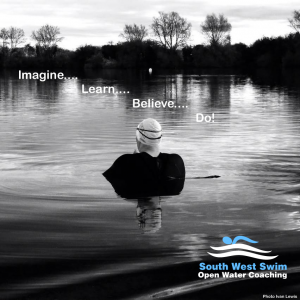
South West Swim Pool Packs from £65.00
We are a growing sport and we need to continue this with individual experiences that others can start to relate too. We want more new swimmers to be asking themselves “why am I doing this” “what am I doing” and “this is colder than I thought”, then forgetting those questions ever existed in their minds after the first session.
Top tips for your first session:
1) Find a qualified open water specialist coach, Open water swim club or a good group of experienced open water swimmers to get you started. Jason Tait from South West Swim is one of the only fully qualified ASA & STA Open Water coaches in the region.
2) Remember this is YOUR swim, do not worry about anybody else or what they are doing
3) Do not be intimidated by those around you. Some will be getting in without wetsuit in all sorts of temperatures. Never feel the need to compete with this, skins swimmers may have been swimming this way for years and be very acclimatised to the swim at hand.
4) Acclimatise to the water, gradually get in, always have your hands in the water and allow your body to get used to the temperature.
5) Float around in your wetsuit to get used to it, pop your face in the water and have a look around.
6) Remember once you get out you may be cold. Many new swimmers start in the early part of the season when temperatures are colder so warm up post swim with a dryrobe, hot drink and warm clothes.
All content and Images Copyright of South West Swim – Jason Tait
First Published on www.southwestswim.co.uk on 22nd May 2015
